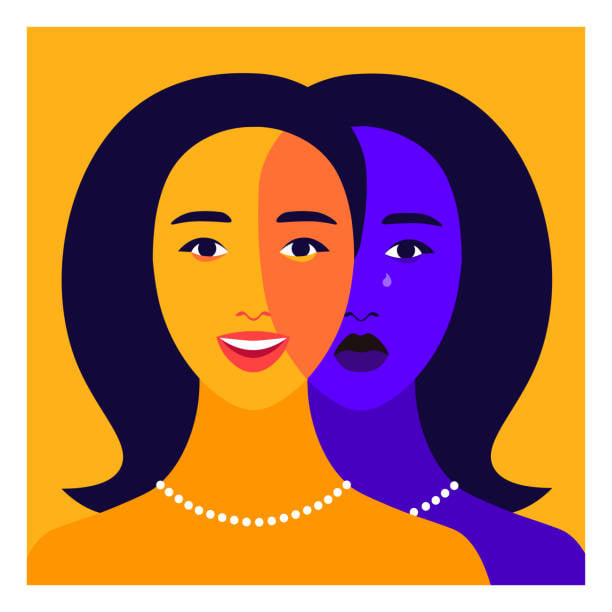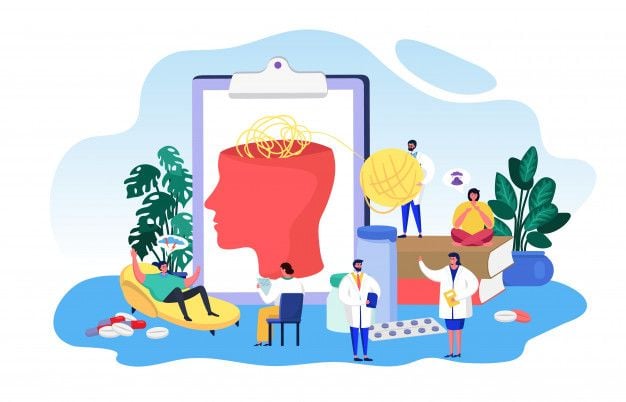drsdiwan's blog

Grief and depression can look and feel very similar, but they
are distinct experiences. Both can cause profound sadness, changes in sleep and
appetite, and difficulties in daily functioning. However, understanding the
differences between grief and depression can help individuals identify when
they may need additional support. Consulting the best psychiatrist in
Bhopalcan
provide clarity and effective coping strategies if you’re struggling to
differentiate between these emotions.
What Is Grief?
Grief is a natural response to loss, such as the death of a
loved one, the end of a relationship, or any major life transition. Grief comes
in waves and can trigger a wide range of emotions, from sadness and anger to
even relief in certain cases. While grief is deeply painful, it typically eases
with time. Over time, most people find ways to adjust and carry on, even while
holding memories of the lost person or experience close.
Some common features of
grief include:
-
Focus
on Loss: Feelings and thoughts are generally centered on the specific loss.
-
Intense
Sadness with Moments of Relief: There are often temporary periods of joy or
calm, even during the grieving process.
-
Ability
to Connect: People experiencing grief often still feel capable of connecting
with others, sharing their emotions, and finding support.
What Is Depression?
Depression is a mental health disorder characterized by
persistent sadness, hopelessness, and a lack of interest in life. Unlike grief,
depression may not be linked to a specific loss or event. It often impacts
every aspect of a person’s life, making daily tasks feel overwhelming. Depressionusually requires treatment to improve, and without support, it can linger
indefinitely.
Common signs of
depression include:
-
Persistent
Low Mood: Feelings of sadness, emptiness, or hopelessness lasting for weeks or
more.
-
Loss
of Interest in Activities: A person with depression often loses interest in
activities they once enjoyed.
-
Isolation:
Unlike grief, which often includes support-seeking, depression can lead to
social withdrawal.
When to Seek Help
Recognizing when grief may be evolving into depression can be
difficult, but it’s important to seek help if:
-
Feelings
of Hopelessness Linger: If sadness feels all-encompassing and doesn’t ease over
time, it may be more than grief.
-
Daily
Functioning Is Significantly Impacted: Struggles with work, self-care, or
relationships lasting more than a couple of months might indicate depression.
-
Loss
of Interest in Life: A constant lack of motivation and interest in activities
that once brought joy could be a sign of depression.
-
Thoughts
of Self-Harm: If grief leads to thoughts of self-harm or suicide, seeking
immediate help is essential.
If you or someone you know is experiencing these symptoms,
reaching out to the best psychiatrist in
Bhopalcan
provide the necessary support and guidance. A mental health professional can
help differentiate between grief and depression, offering therapy, coping
techniques, or medication if needed. Remember, seeking help is a step toward
healing, allowing you to manage your emotions healthily and regain control over
your life.

Obsessive-compulsive
disorder, or OCD, is a mental illness that causes intrusive thoughts. These
thoughts, fears, and images are persistent, even when the person knows them to
be unrealistic or illogical, says the best psychiatrist in Bhopal.
The severity of OCD varies from person to person. Some may have just one
intrusive thought while others will have many different obsessions. OCD can
present in different ways, but they generally focus on someone’s inability to
feel in control of their own thoughts.
Signs and Symptoms of OCD
Most people who
have OCD know what triggers their symptoms, but they are often unable to stop
them. There are five main types of obsessions, each with different triggers.
One of the most common is checking, the need to check the stove or lock the
door one more time. Others include counting, the need to count every single
light switch in a room; fear of contamination, fear of getting sick from germs;
and sexual obsessions, the need to imagine violent or deviant sex acts. You
might believe that you are crazy or that there is something wrong with you.
What are the 4 Types of OCD
There are four
main types of OCD. The first is called simple obsessions. These are thoughts
that are meaningless but cause anxiety. For example, when you're driving you
might suddenly think about driving into a tree. This thought makes you nervous
but doesn't cause any physical discomfort. The second type is called
compulsions. These are actions that need to be done repeatedly because the
OCDer feels compelled to do them, even though they have no positive effect or
meaning. For example, a person with obsessive-compulsive disorder might spend
hours walking up and down the stairs in an attempt to relax. The third type is
called rituals. They’re usually repeated behaviors that serve no obvious
purpose. For example, a person with obsessive-compulsive
disorder might wear the same clothes every day, wash their hands
excessively, or repeat words they’ve heard repeatedly. The fourth type is
called obsessions. These are thoughts that occur to a person again and again.
When Should You See A Doctor?
Your answer may
depend on when you started noticing the problem. The more likely it is that you
have OCD, the sooner you should see the best psychiatrist in Bhopal.
But there's no "normal" amount of time it takes for OCD to appear. If
you've had the same thoughts for at least one month, you may need to see a
mental health professional. Obsessive-compulsive disorder is treated by
medicine, therapy, or both. Treatment can help you get better.
Final Words:
Obsessive-compulsive
disorder (OCD) is an anxiety disorder characterized by having unwanted
thoughts, feelings, or behaviors that intrude on everyday life. Symptoms
include obsession with trivial things, excessive time spent organizing,
checking, washing, or cleaning. OCD is caused by the parts of the brain that
manage impulses and emotional responses not working as they should. Treatments
for OCD vary, depending on the individual, but can include talk therapy,
medication, or both.

Depression and
anxiety are very serious mental illnesses that affect the vast majority of
people at one point or another in their lives. Luckily, there are many ways to
overcome these challenges. Finding the right therapy regimen, using helpful
coping skills, or joining a support group, organised by a professional psychiatrist in Bhopalare all steps that can aid in one's
recovery.
What is depression and anxiety?
Depression and
anxiety are two very different mental illnesses that can both cause physical
symptoms. Depression is classified as a mood disorder that will affect the
sufferer's feelings, thoughts, behaviors, body, and what they do on a daily
basis. Anxiety, on the other hand, is an impulse control disorder that will
affect the person's thoughts, behaviors, and their ability to feel calm. A
person can have one or both of these disorders without being diagnosed.
How can one overcome depression and anxiety?
Numerous studies
have shown that a person's mental health may be improved by seeking help from a
trained professional. If one is feeling a lot of hopelessness and sadness, they
should consult a mental health specialist in Bhopal. They may be diagnosed with
depression or anxiety, and in that case it would be a good idea to take
medication if their doctor prescribes it. In the case of major depression,
therapy is also necessary.
What treatments exist for those with
depression and anxiety?
Psychotherapy is
one treatment for those with depression and anxiety. Cognitive behavioral
therapy is a type of psychotherapy that has been shown to be effective in
treating the disorder. Another treatment for those with depression and anxiety
is antidepressant medication.
Antidepressant
medication will help alleviate the symptoms of depression and anxiety. It may
also help those who do not have these disorders. Talk therapy such as cognitive
behavioral therapy and psychodynamic psychotherapy can be useful in treating
depression and anxiety. Note that, you should not take over-the-counter
depression medications. Instead, make sure to see a psychiatrist in Bhopal for depressionor anxiety treatment.

According to a psychiatrist
in Bhopal, many people go through
life feeling the pressure and stress of the constant need to get things done.
The internet age has made it possible for everyone to take on multiple jobs,
which only adds to the anxiety that many people feel. Tired of feeling like
their lives are out of control, people are starting to take their own time and
use mindfulness and other techniques to start taking steps towards coping with
the stress in their lives.
What is
stress?
It is a form of mental or emotional strain or tension,
which can be acute or chronic, natural or man-made. People experience stress in
many different ways; it can be experienced as positive or negative. The body's
natural stress response is called the fight-or-flight response. The nervous
system releases adrenaline, which speeds up your heart rate and tightens blood
vessels. The stress response is usually short-lived, lasting no more than
minutes. During this time, your muscles are strong and blood pressure is
raised. Stress can be destructive if it remains for a long period of time.
What Are the
Symptoms of Stress?
Stress is a normal human response to stressful
situations. The symptoms of stress can be physical, emotional, mental, or
behavioral. Symptoms of physical stress might include chest pain, headaches,
nausea, and muscle tension. Emotional symptoms might include irritability,
anxiety, depression, frustration, or anger. Mental symptoms might include poor
concentration, memory loss, or trouble sleeping. Behavioral symptoms might
include overeating, smoking, or drinking too much alcohol.
What makes
us stressed?
Many things, including but not limited to overworking,
feeling overworked, the demands of work, the pressure of deadlines, and
work-related fears can cause stress. Stress can also be caused by spending too
much time on the internet. Many people are turning to mindfulness and other
techniques to deal with this stress. If you're looking for ways to relieve
stress, it's important to figure out what is causing the stress.
How to Deal
With Stress Using Mindfulness and Other Techniques?
Mindfulness is an ancient practice that has only
recently been embraced by psychiatrists
in Bhopal. Mindfulness is a technique
that increases focus on what is happening in the present moment. It does not
try to change anything, but instead, it accepts everything as it is. The
practice of mindfulness can help with anxiety and depression, as well as with
managing pain. Other techniques for stress relief are deep breathing exercises,
which promote oxygen circulation, and yoga, which helps with flexibility.
When should
I talk to a doctor about stress?
Stress has been proven to be bad for your health. If
you're experiencing any stress that is affecting your day-to-day life, it's
time to talk to a psychiatrist in Bhopal for stress treatment.
